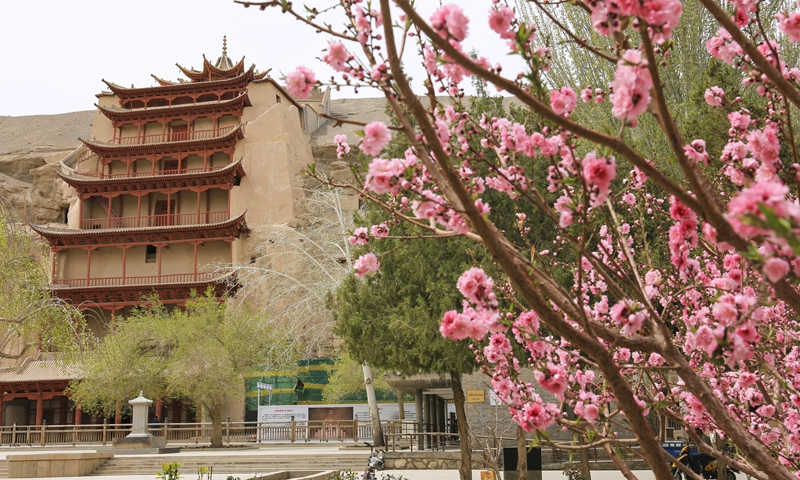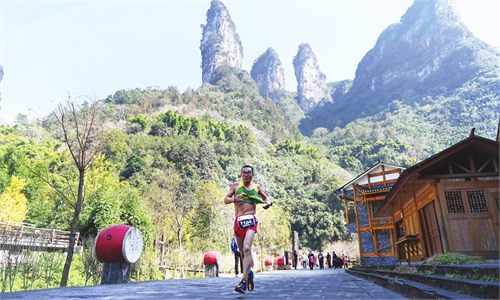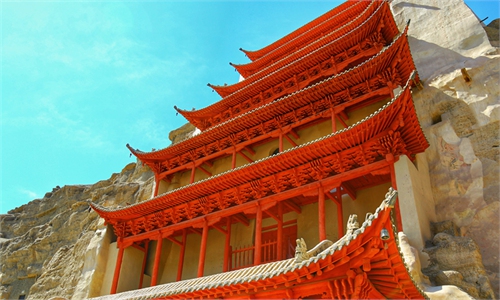Camping and hiking activities damaging cultural relics banned in Dunhuang Mogao Grottoes

Photo taken on April 20, 2021 shows a view of the Mogao Grottoes in Dunhuang, Northwest China's Gansu Province. Photo: VCG
Camping, hiking and other activities that could damage cultural relics, buildings, structures and natural landscape have been banned in Dunhuang Mogao Grottoes Conservation Zone, Dunhuang Academy in Northwest China's Gansu Province, which oversees the grottoes, announced on Tuesday.
According to the Regulations for the Conservation of the Mogao Caves in Dunhuang, all institutions, companies, and individuals are prohibited from entering the conservation zone in order to effectively secure the lives and properties of the general public and tourists, Dunhuang Academy stressed on its official Weibo account.
Activities including hiking, camping, cross-country races, quarrying and sand sliding that could damage cultural relics, buildings, structures and natural landscape are prohibited to be held in the zone.
According to a staffer from the Dunhuang Academy reached by the Global Times on Thursday, tourists' normal visits to the Mogao Grottoes will not be affected since the sightseeing route is arranged.
"The announcement just aims to stress the ban on unauthorized camping and hiking activities held in the specified area," said the staffer under the condition of anonymity.
Any institution or personnel that enters the zone will be severely punished in accordance with related laws and regulations, the academy noted in the announcement.
As a renowned UNESCO World Heritage Site, the Mogao Grottoes, with a history of more than 1,000 years, are home to the collections of Buddhist artworks consisting of more than 2,000 colored sculptures and 45,000 square meters of murals in 735 caves carved along a cliff by ancient worshippers.
Located in the Dunhuang area with a very dry climate, the Mogao Grottoes are surrounded by the Gobi Desert, and have a very fragile ecological environment.
Last month, a deadly mountain ultramarathon held in the Yellow River Stone Forest tourist site in Jingtai county, Baiyin, Gansu claimed 21 people's lives including two of the country's best long-distance runners after they encountered extreme weather conditions.
After the accident, high-risk sports were suspended across China by China's General Administration of Sport, vowing to improve the regulations of emerging high-risk sports.


